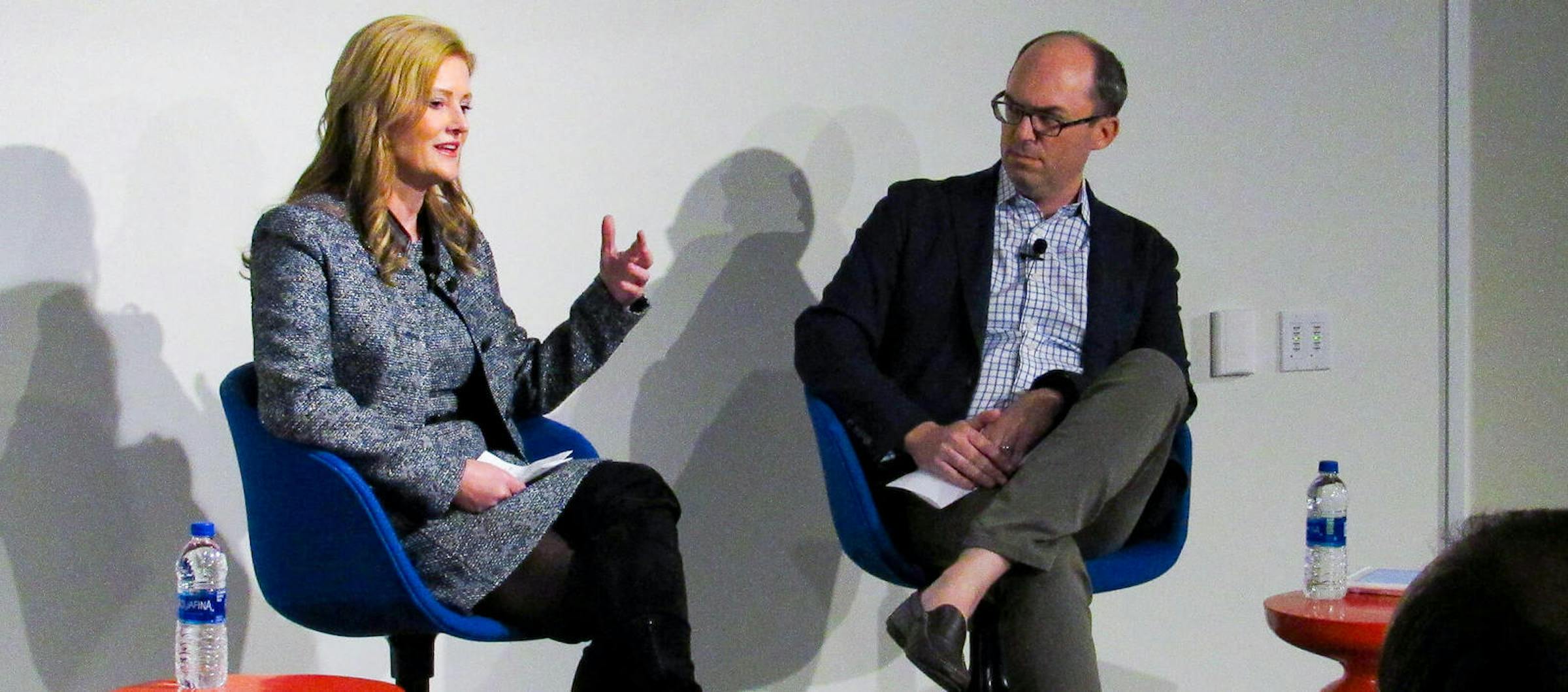Shelly Sun shares how she went from risk-averse accountant to first-time healthcare founder at Tales from the Trenches
In late 2001, Shelly Sun took on the task millions of American adults face every year: finding high-quality home care for an elderly relative.
Shelly left that experience with a new understanding of the unique needs of aging adults — and the inspiration to leave her career in accounting and create a new kind of home healthcare company. Today the company Shelly built, BrightStar Care, delivers quality care to approximately 20 million people across 345 locations and 39 states.
In a conversation with VillageMD CFO Ross Levine, Shelly shared her entrepreneurial journey: from taking the leap to found her own company to bootstrapping Brightstar to how she keeps her caregivers happy.
Here are our key takeaways.
Shifting careers: from accountant to startup founder
“I was going through a family experience looking for home care for my grandmother back in late 2001. It was difficult and there wasn’t a one-stop shop where I could hire an agency and have them provide the nonmedical and medical services that we were looking for…At that time, I was a CPA working in insurance — I was not an entrepreneur and never thought I’d be an entrepreneur. An accountant is probably as far from ‘risk-taker’ as you could possibly imagine. But that experience with my grandma gave me a passion for helping families going through what we went through.
“I spent the next six months or so doing a lot of research, talking to a lot of people, seeing if I was the only one or if there were others… I started the company in late 2002 about a year after that personal journey looking for care. [That journey] has really been a lot of the driving force and even as we’ve expanded, I’m always thinking about how we can ensure that we’re delivering high quality care a thousand miles away.”
Bootstrapping and financing
“Financing is not always the fun part of the journey, but I bootstrapped and I still own 100 percent of my company today — even as we’ve grown and scaled and have $500 million in system-wide sales. Worrying about money has been some of the scariest times, especially given the fact that I’m a CPA and not entrepreneurial or a risk-taker generally…There were several times when I had to put payroll on a credit card and just pray that the business came in and that bills got paid by our customers.
“We’re in a float business: We’re paying our caregivers every week, but it might be two to six weeks before we’re paid by our customer. So the faster we grew, the scarier it got from a cash flow perspective. But we bootstrapped, and Chicago also has some really great financing programs for women. We accessed $250,000 through the economic commerce development department…That gave me the next amount of funding that I needed to franchise.”
Creating a team that can grow with the business
“My first few hires were what I needed — and all I could afford. It was about five years into the journey when I started being able to afford talent for the long haul. One of the things I think helped the journey along was thinking about where I wanted the company to be two years in the future and hiring talent that had experience for that size of company. I didn’t have the luxury or the cash to do that before, but as soon as I started hiring at five years, I adopted that process.
“Let’s say that at five years I was a $25 million company. If I wanted to be at $50 million in two more years, I looked for people who had the experience for a $50 million company, not a $25 million company. That was a really pivotal point — expensive, but a pivotal point so that we weren’t outpacing our talent near nearly as fast.”
Hiring people who can do what you can’t do, not what you don’t want to do
“In the early stage, I had a desire to hire people to do the things I didn’t enjoy doing versus what I couldn’t do. It was not the best use of capital to hire a controller as early as I did, given the fact that — although I hated it — I could do all of the books and bank reporting myself. I should have made investments in talent for the skill sets I didn’t have sooner. If I could go back and do it again, I’d keep sucking it up and doing the stuff I didn’t like for longer.”
Prioritizing quality while franchising
“The reason you don’t see companies franchise in healthcare is you have to be willing to grow slower to enforce the right standards.
“The reason you don’t see companies franchise in healthcare is you have to be willing to grow slower to enforce the right standards.”
“And so in my first franchise agreement, I took the time to really get it right: We have the right to take away a franchise if quality standards are not met and taught, licensure isn’t maintained, etc. That evolved to giving us the right to require accreditation.
“Out of 25,000 agencies that do what Brightstar does across the country, we are the only one to be recognized by The Joint Commission as Enterprise Champion of uality. And that means that more than 95 percent of my locations have to be accredited. We require our franchisees to become accredited after one year in business — so we’re really focused on that quality.”
Giving caregivers good reasons to stay
“I think a big reason we’re able to retain our caregivers is that it’s pretty scary to be a caregiver and have a change in condition for a client — but we give [caregivers] the support they need when that happens… We’re so grateful to all the caregivers that we have, and so we try to empathize with them. Our caregivers have [access to] a nurse that they can call at any point in time, 24 hours a day, if something changes in their client’s condition and they don’t know what to do about. That gives them a lot of security that they’re not used to having with any other company.
“A lot of companies do exit interviews, but we do ‘stay’ interview to understand why our [caregivers] came and why they stay.
“A lot of companies do exit interviews, but we do ‘stay’ interview to understand why our [caregivers] came and why they stay.”
“Through those interviews, we’ve come to understand that having access to that mentor and advisor and a director of nursing is a critical part of how we keep our caregivers happy. You can apply that idea to any business model: Develop education for your employees to help them grow their skill set and make sure they have a mentor to go to at any time.”



